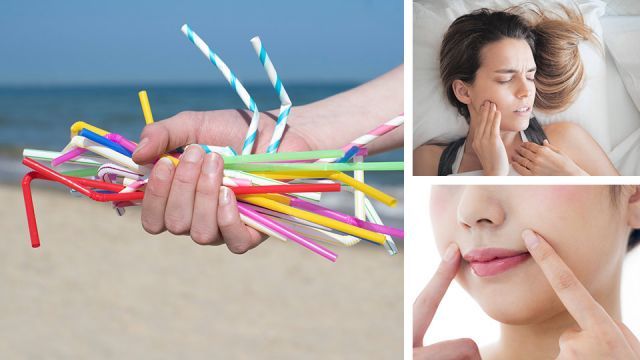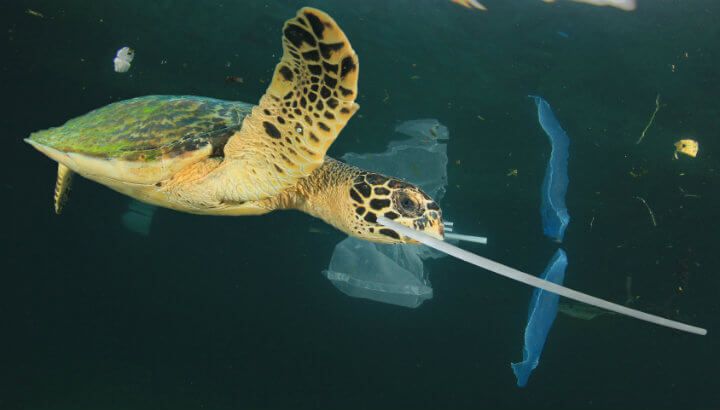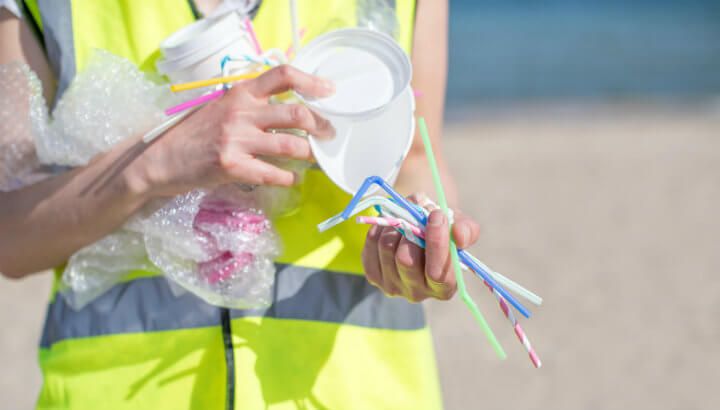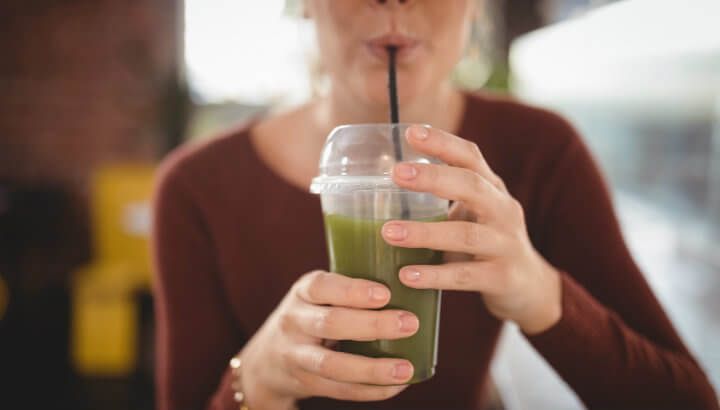
Sipping a summer drink through a plastic straw is a familiar and seemingly innocuous experience, but an increasing number of businesses and municipalities are taking steps to phase out an item that is responsible for a surprising number of health and ecological problems.
Recently, dozens of cities across the United States (the latest is Seattle, Washington) have banned plastic straws because they have been identified as one of the leading causes of environmental pollution. According to the watchdog group Better Alternatives Now, plastic straws and stirrers constitute nearly eight percent of the plastic waste that is literally trashing the planet.

The problems caused by plastic garbage is becoming so severe that a report published by the World Economic Forum predicts that the amount of plastic now littering the oceans will weigh more than all the fish in the sea.
Given all the synthetic chemicals leaching into the water, the choking hazards and the disruptions to natural habitats, the sheer volume of plastic people are dumping into the ecosystem is posing a monumental threat to both planetary and human health.

Five ways plastic straws threaten your health.
Some perils are heartbreakingly obvious, such as sea turtles that have plastics straws lodged in their mouths, nostrils or intestines. But these plastic tubes may be to blame for a host of other less apparent health issues. Here’s a quick list of the ways plastic straws may be harming your health:
1. Gas, bloating, and intestinal discomfort
When you sip beverages through a straw you end up inhaling more air into your belly than you would otherwise. If you are constantly feeling gassy, then you should definitely consider drinking beverages the old fashioned way.
2. Cavities
Drinking beverages through a straw can concentrate the flow of liquid at particular spots on your teeth. If you are consuming sweetened or carbonated beverages, then the damage to enamel at certain points can be even more severe when you use a straw.

3. Hormonal balance
Most plastic straws are made from a petroleum-based chemical called polypropylene. The FDA has approved this compound for consumer use, but there’s increasing evidence that this synthetic chemical can leach into beverages, particularly when it is exposed to heated, carbonated or acidic drinks.
One concern is that polypropylene can disrupt estrogen levels in the body. Estrogen dominance has been linked to a number of health problems including cancer. For helpful advice on reducing exposure to chemicals in common plastics, you can check out the information provided by Breastcancer.org, a non-profit dedicated to sharing info about preventing breast cancer.
4. Contaminating the food chain
According to Ecocycle.org, people use (and throw out) 500 million straws each day. These non-biodegradable tubes end up in landfills and oceans. Too often, marine life including whales, tortoises and fish mistake these and other plastic items for food.
Items made from plastic are not digestible and can be immediately life-threatening for many species of marine life. In addition, toxic chemicals from microplastics inevitably leach into aquatic creatures that both wildlife and humans consume. These compounds can upset the hormonal balance in species that rely on them as a food source. For more info on a social media challenge that aims to put an end to practices and habits that contaminate our precious marine ecosystem, you can check out #StopSucking and the Loney Whale.

5. Wrinkles
It’s well-known that smoking contributes to wrinkles. But it’s not just the thousands of noxious chemicals in tobacco smoke that damages your collagen and skin’s elasticity, it’s also the activity of sucking itself. Similarly, repetitively sipping on straws may lead to what are known as “pucker lines.” Ditching the straw may not only be good for your health and the environment, but it may also help you look younger than your years.
Conclusion
There are safer and more renewable straw alternatives. For a list of environmentally-friendly choices that include straws made from glass, bamboo, compostable and even edible material please click here.
People are starting to wake up to the fact that plastic straws suck when it comes to the environment, human health and wildlife. They may soon be banned in England, New York City and elsewhere. In addition, fast-food restaurants are under intense pressure to discontinue them.
Nevertheless, it’s worth pointing out that many disabled individuals, particularly those with neuromuscular conditions, can benefit from using plastic straws. But for the vast majority of people, it’s about time to say, “this is the last straw.”
For more helpful information on healthier plastic alternatives please click here.
Free book reveals how to fight disease and heal your body with lemon! Click Here =>
— Scott O’Reilly

